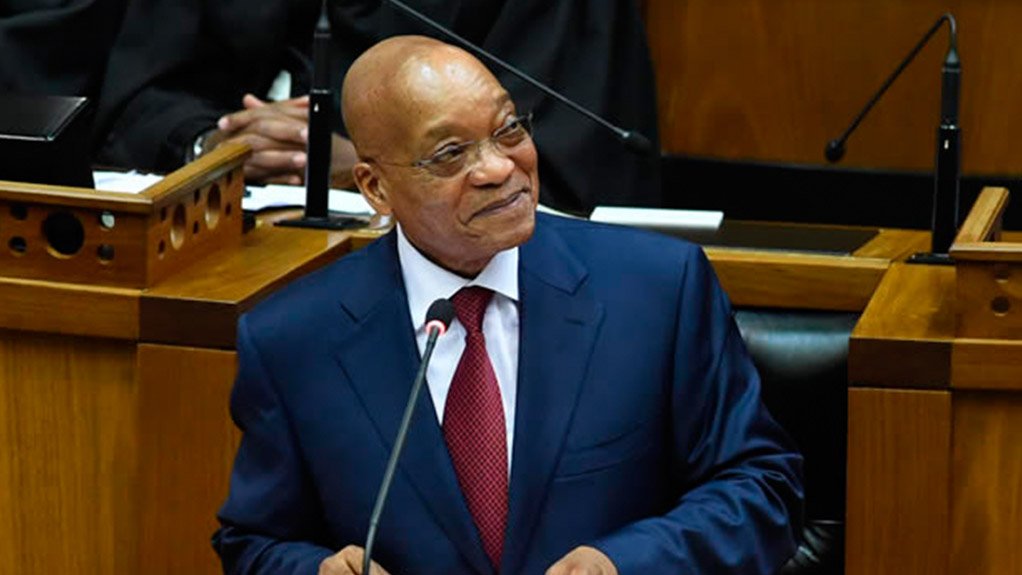President Jacob Zuma frustrated the opposition when he finally returned to the National Assembly on Wednesday to face their questions on the Nkandla saga, flatly denying personal wrongdoing and any obligation to repay state money spent on his home.
"Never have I ever thought on the date when I will pay back the money," he told Economic Freedom Fighters (EFF) MP Natasha Louw, six months after her party stole the political agenda by shouting "pay back the money" at him in the same chamber.
She had demanded, in a follow-up question, to know whether he had given any consideration to "targeting your machine to pay back the money"
An ebullient Zuma said he faced no criminal charges over the R246-million project, and was under no pressure to reimburse the state because at this stage it was still up to Police Minister Nathi Nhleko to decide whether he was liable to repay any portion of the sum.
Nhleko's decision was only due at month's end, he added.
"Firstly, there is no money that I am going to be paying back without a determination by those who are authorised to do so, as recommended by the Public Protector.
"The Public Protector has not said pay back the money. The Public Protector has said... where [there is] undue benefit to the family or myself, she thinks this money might be paid back. But this should be determined by the minister of police.
"That determination has not been done. Why do you say I should pay back the money? You don't even know how much," he said, to loud applause from ruling party benches.
MPs only arrived at question time after 90 raucous minutes spent on points of order, raised mainly by the EFF and Democratic Alliance (DA), who accused Zuma of breaching parliamentary rules and evading his executive responsibility by refusing to return to the National Assembly in November last year to answer questions.
EFF leader Julius Malema in vain tried to wring a commitment from Zuma that he would commit to setting a date on Thursday morning for a supplementary question session in return for an assurance from the EFF that "this is going to be a most peaceful meeting".
The president ignored the implied threat of another disruption of the National Assembly four weeks after violence marred his state of the nation address and retorted: "No, I'm not going to give a date, I never give dates."
Both Zuma and Speaker Baleka Mbete told MPs that it was not for the head of state but for his office staff to agree to dates for him to appear before the legislature.
Replying to a set question from DA parliamentary leader Mmusi Maimane on when he would return to Parliament to answer outstanding questions in terms of rule 111, Zuma denied that there were any.
He said he had never reneged on a date for question time, turning a deaf ear to a reminder from the EFF that in November he had failed to appear before the National Assembly after opposition MPs rejected a pre-condition to treat him with greater respect.
"Whenever Parliament says I must come on anything, I do come. I have never refused. Once Parliament has taken a decision, I always complied."
He then turned the blame for his absence last year back on the EFF, saying their heckling on August 21 had forced an early adjournment.
"I was not allowed the time, and that it what happened on that day."
Before the sitting was cut short, he added, he had answered their question on Nkandla, albeit it not to their satisfaction.
"They wanted the answer they want, not what I was answering."
He continued to drive home the point, despite many calls from Mbete to sit down to allow further points of order, later joking that he could not hear the opposition clamouring for a turn to speak.
The EFF responded to this by invoking the sub judice rule – a ploy for which the opposition has in recent weeks ridiculed the Zuma government.
EFF spokesperson Mbuyiseni Ndlozi rose to call Zuma out of order for referring to the fact that his party was sanctioned by the powers and privileges committee for their August protest, because it was still challenging the findings in court.
At this it became plain that the assembly would not see the same level of protest it did on August 21 and February 12 when riot police, who were again stationed at the doors on Wednesday, were called in to forcibly remove EFF MPs.
United Democratic Movement leader Bantu Holomisa then returned to the theme of Malema's scripted question to Zuma – his legal woes and the perception that his attempts to evade charges were damaging the criminal justice system.
He asked whether the president would consider taking a sabbatical given the cloud of allegations against him.
Zuma replied that he would not as he was not aware of any allegations, and referring to criminal charges related to the 1999 arms deal, added that the case had been withdrawn without any interference on his part.
EMAIL THIS ARTICLE SAVE THIS ARTICLE
To subscribe email subscriptions@creamermedia.co.za or click here
To advertise email advertising@creamermedia.co.za or click here











